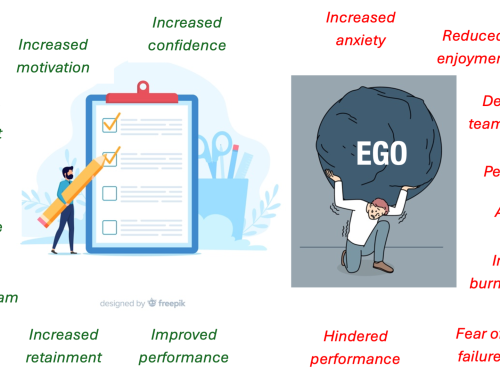I recently came across an article on Sky Sports, entitled:
‘Jurgen Klopp is ahead of the game: Why empathy will be biggest innovation of English football in next decade’
Within, Klopp’s approach to empathetic management is attributed to his success. Leading Liverpool to their first domestic title in 30 years is no small feat. Even more so when you account for narrowly missing out the previous season, alongside a Champions League runners-up and winner’s medal in consecutive seasons. But what this article seems to highlight is football’s seeming oversight of such a basic yet important construct: empathy
The article highlights empathy as the key to success within the business world, all supported by the mind-boggling (yet slightly beige) stat that the top 10 rated companies on the Global Empathy Index in 2015 increased in value twice as much as those companies at the bottom. For those of you that are interested, the top companies included Microsoft, Facebook, Tesla, and Google, just to name a few while JD Sports was the least empathetic company, at No. 160. Remember that the next time you fancy buying a new pair of New Balance to go to training in…
But that’s just business?
Well, exactly. But in success-driven environments that make up sports teams, why isn’t empathy focused on more? After all, athletes are people too, with a lot more going on behind the scenes than the athlete we see in training, or the one we see playing 90 minutes of football once, twice, three times a week.
It seems, judging by success at the top at least, that Mr Klopp has cracked it.
But if this obviously works, then why aren’t others aiming to replicate this, naturally or through other means – for example using sport psychology?
Well, the short answer, they are! The surprising matter of fact is that in the conservative world of football, where new methods are seen as a dark art, this empathetic approach to coaching is often overlooked without a second, serious thought.
Until now….
Edu Rubio, a respected coach currently working at Crystal Palace, is the co-creator of ‘My Energy Game’, a tool that has the intention of helping athletes achieve their best self through coaching of their inner-self through the use of one-to-one support, online resources and workshops.
While this empathetic approach may seem removed from the mainstream of football coaching philosophy, Coach Rubio understands that players are people first and football players second. In his own words, “I am also a person with emotions who understands that a player is not going to be able to prepare for set pieces as well as they can if they are not comfortable in their own skin, motivated and happy. It is time to be brave enough to acknowledge that.”
I agree that it does indeed take someone brave enough to speak against the mainstream coaching methods seen in clubs across the sporting landscape. But why does it take someone to be brave to notice the effects of empathy in coaching? To those on the outside, it might seem obvious that empathetic leadership would result in better performance, more happy and satisfied staff and better motivation.
But does empathy really help?
Well, there are individuals that would argue that empathy isn’t the cause of success, and may even argue that it is irrelevant. Pep Guardiola, one of the most successful managers in world football, is renowned for his focus on on-pitch matters but not for the affairs of players off the pitch. It’s hard to argue against the success seen of such coaching with no attention paid to empathy.
To me, empathy is one of the most important concepts in the psychology of sports. Empathy can not only help the athletes themselves but also those supporting the athletes, like parents and coaches. Coaches who show empathy can inspire more effort and confidence while empathetic parents can help their children resolve problems sooner and easier.
It is easy to forget the individual behind the footballers we see week in, week out. While we can’t ignore the success that coaches who aren’t as empathetic, we also can’t ignore those who are more empathetic. Klopp, leading Liverpool through their most successful period in over 30 years, is this approach personified. Aside from the success on the field, he has recognised the importance of the players off the pitch, enabling him to unlock the full potential of those who he manages.
Football is an ever-changing sport, and maybe this hints towards a future culture shift in management style. In an age where players are more connected to the outside world than ever before, through social media channels and public scrutiny, maybe it’s time to begin to understand the player off the pitch just as much as on it.
What do you think of empathetic coaching? Are you an athlete who thinks they prefer an empathetic coach, or even the opposite? Drop me a message through the ‘Contact Us’ page, or @Leading.Edge.Performance on Instagram!





Leave A Comment